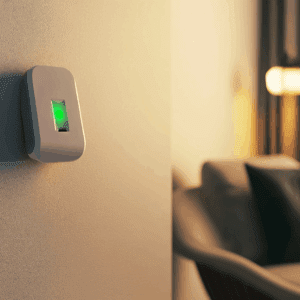Emergencies can happen at any time - whether it's a fall, natural disaster, power outage, or sudden health issue. For older adults, especially those living independently or with cognitive impairment, having a clear and accessible emergency plan can be lifesaving.
A thoughtfully crafted “just in case” plan doesn’t just protect - it empowers. It gives seniors and their families the peace of mind that, should something unexpected arise, everyone will know what to do.
Here’s what to include in a comprehensive emergency plan for seniors.
1. Emergency Contacts (With Context)
Start with a list of trusted contacts:
- Family members
- Friends or neighbors nearby
- Primary doctor
- Pharmacy
- Caregiver or home aide
- Local emergency services (non-emergency line)
Include full names, relationships, phone numbers, and any special instructions - such as who speaks your loved one’s language or has a spare key. Make sure the list is printed, easily accessible, and stored digitally.
2. Medical Information and Medication List
In an emergency, responders need quick access to accurate medical information:
- Allergies
- Diagnoses (e.g., dementia, diabetes, heart disease)
- Medication names, dosages, and timing
- Health insurance info
- Preferred hospital or provider
Use a printed document and store a digital copy in an app, or on your phone’s Medical ID feature. Elli Cares can also deliver reminders for medications, ensuring routine doses aren’t missed - especially in chaotic situations.
👉 A helpful read: Manage Medications for Seniors at Home
3. Mobility & Accessibility Needs
Detail any devices or requirements that may affect a senior’s ability to evacuate or get help:
- Walking aids, wheelchairs, or stair lifts
- Portable oxygen
- Visual or hearing impairments
- Home modifications (e.g., grab bars, ramps)
Make sure emergency services, neighbors, or family are aware of these needs. In case of power outages, ensure critical devices have backup batteries or generator access.
👉 The Red Cross has a fantastic resource on Emergency Preparedness for Older Adults
4. Location Tracking and Safe Zones
For seniors living with dementia or memory loss, location safety becomes critical. With the Elli Cares Safe Zones, you can define safe areas and receive alerts if a loved one exits the zone - helping to prevent wandering-related emergencies.
Include:
- Home address with clear entry info
- Nearby “safe houses” (friends, family, or neighbors)
- GPS tracker or app setup info
- Directions for emergency responders
Apps that include Find My Way Home features are especially helpful during confusion or disorientation.
5. Power of Attorney and Legal Documents
While not always used in immediate emergencies, key documents should be easy to locate in a crisis:
- Power of attorney (medical and financial)
- Advance directives
- Do-not-resuscitate (DNR) order, if applicable
- Insurance policy numbers
Keep copies in a clearly marked envelope, ideally in a waterproof/fireproof container, and share the location with family or care partners.
6. Daily Care Instructions
For emergencies where a new caregiver may need to step in, a simple guide to daily routines can be invaluable:
- Wake-up and bedtimes
- Meal preferences or dietary needs
- How reminders are set (especially if using an app)
- Personality notes (e.g., gets anxious around strangers, prefers quiet in the morning)
7. Emergency Supplies Checklist
Ensure there’s a “go bag” or easily accessible supply kit with:
- A few days’ worth of medications
- Flashlight and batteries
- Non-perishable snacks and bottled water
- Spare glasses or hearing aid batteries
- Blanket and spare clothing
- Printed emergency plan and ID
Consider storing an extra kit in the car or with a nearby loved one.
8. App Access and Digital Tools
If you're using Elli Cares or another digital tool, make sure:
- Someone else has admin access
- Alerts are set up for family or care partners
- Instructions are included on how to use or access the app in an emergency
Digital tools can also be used to send video reminders or check in after an event, providing familiar voices to reassure and reorient seniors.
👉 Take a look at How Video Message Apps Support Dementia Care
An emergency plan isn’t just a document - it’s an act of care. It says: We’re thinking ahead. We’ve got your back. You’re not alone.
The best plans are simple, shared, and revisited often. With tools like Elli Cares and resources from health agencies and senior organizations, you can build a plan that supports your loved one to live confidently, knowing help is always within reach.
Start small. Print the contact list. Set up app access. Add one thing each week. Because the best time to plan for an emergency - is before it happens.








